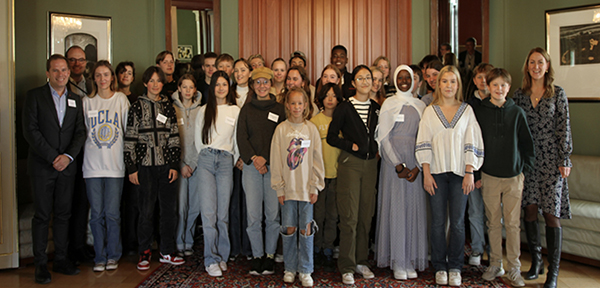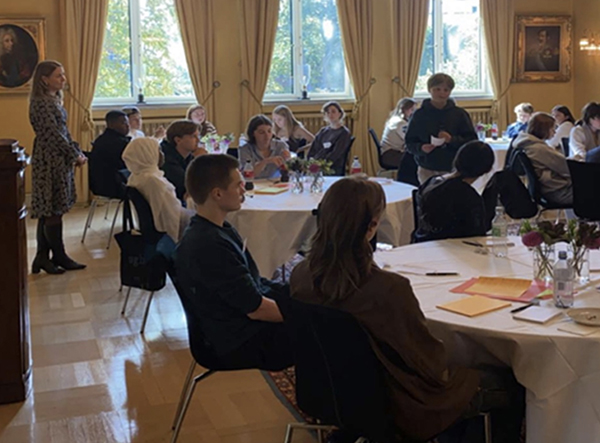Shadowing and evaluating national student panels
About:
The Norwegian Ministry for Education and Research is working on a white paper regarding young people and school, aiming for publication in 2024. It organised a panel of learner representatives from all regions that could gather in-person and online and give input to the paper. The representatives were selected based on criteria to ensure the panel constitutes a diverse group of learners. In addition to the panel meetings, there are planned regional and local events.
The Agency’s VIA Norway team followed the process established by the Ministry and gave input and advice on the process. The team also attended and observed the panel’s kick-off seminar, where the Minister of Education and two state secretaries were present.

After the seminar, the team contacted the panel and explained the VIA activity to the learners. The team sent a questionnaire to the 20 learners on the panel with targeted questions about their experiences of participation. This survey included explanations on how their input was to be used. Furthermore, the team interviewed the six members of the white paper project group about the anticipated output from the process.
Outcomes:
This high-level initiative established an arena for learners’ input to a policy-making process. The inputs from the panel will be embedded in the final White Paper on Youth and School.
The VIA Norway team also compiled insights from their shadowing of the activities:
- Digital meetings resolve some practical challenges of in-person meetings, i.e. lower costs, less time-consuming and potentially more accessible. However, they lack opportunities for informal conversation and learners may ‘disappear’ in digital spaces. It can also be difficult to obtain personal contact and trust between participants. In-person events can provide opportunities for community-building and interactivity.
- For in-person seminars, it is important to consider location, budget, travel and accommodation and assigning personnel to be responsible for learners during free time.
- When planning discussions, it is necessary to avoid ‘leading’ questions and promote free and creative thinking among learners.

Key element(s) of the VIA Framework:
This example from Norway demonstrates SPACE and AUDIENCE in particular. The white paper team put considerable effort into ensuring the panel reflected a diverse range of learners and created safe online and offline spaces for their participation. National-level stakeholders, including the Minister of Education, were involved in the activities and had the chance to directly listen to the learners on the panel.
